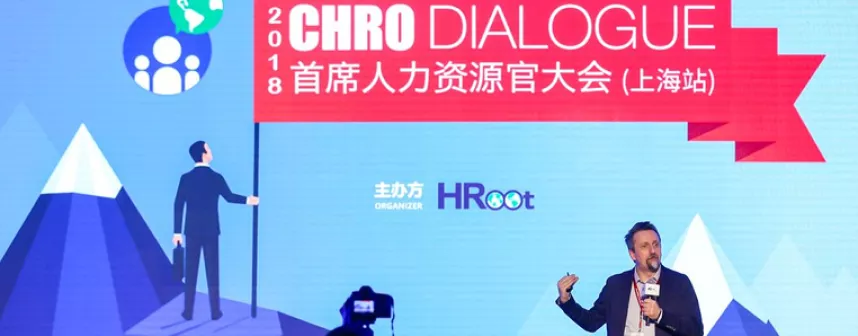Jacobs University intensifies contacts with China
May 9, 2018
Almost ten percent of the students at Jacobs University Bremen come from China. But the private, English-medium university also builds bridges between the Hanseatic city and the most populous country on earth in other respects. China is an exciting field of research for Jacobs University - and an interesting market for continuing education programs.
“I see it like this: there is an incredible potential of creative, determined, self-confident young people here. And the companies that will one day employ them are very interested in our education model," says Predrag Tapavicki, Head of Corporate Relations and Talent Management at Jacobs University Bremen. As the only representative of a Western university, he recently attended a conference on human resources management challenges in Shanghai - as one of five keynote speakers.
What should modern higher education look like? What skills do young people need and what skills do businesses expect from them in these times of digitization? Those were his topics of discussion at the CHRO Dialogue Conference in Shanghai. "Jacobs University’s philosophy of educating students who can actively shape these changes was very well received," summarizes Tapavicki, whose presentation at the conference was organized by the Mulan Innovation Leadership Lab in Shanghai.
Not only companies, but also universities, have to face the challenges of digitization and globalization. For universities this means they must be agile, i.e. convey excellent knowledge in a flexible way not only in one but in several subjects - as well as practical experience and international and intercultural competences, says Tapavicki. These are in high demand in China, supported by the government.
Chinese companies are increasingly aiming to involve themselves internationally, thereby developing their own expertise. Employees with relevant qualifications are urgently needed. “The country wants to strengthen its power of innovation. This is why our education offering is so much in demand,” emphasizes Tapavicki. Young Chinese people are very willing to study abroad. Chinese students at Jacobs University are already the second largest national group after Germans on the campus in Bremen-Nord. Students can discover what the University has to offer them on a Chinese language website. Jacobs University also has its own page on the wide-reach Chinese social media platform, Weibo.
Some of the graduates returned to their home country and are now working for Chinese and major international corporations. Others stayed in Bremen. “Our alumnis build bridges to Germany and are ambassadors of Bremen at the same time,” says Tapavicki. In Shanghai, Jacobs University now wants to establish its own "Chapter" of graduates, a fixed network with regular meetings, as is already in place in many other cities.
Educating students is only one point of contact with China. At Jacobs University’s "China Global Center", scientists research issues relating to Chinese society and their significance for Germany and Europe. Visiting scientists from China contribute their expertise, and individual topics are discussed in depth at conferences. The interested public is also regularly invited to participate. Cooperation agreements and research partnerships are in place with several Chinese universities.
, ,
A key ingredient of the relationship is also the training of employees of Chinese companies. To further intensify this cooperation, a delegation from the international university visited China a few weeks ago. Hagen Böttcher, Head of Business Development, together with Tobias Speicher and Chinese colleague Liaoliao Zhang, attended 16 meetings in six different cities. In their discussions with renowned Chinese companies, the three found that they were positively received.
“The further training of their employees on an international stage is an important topic for many companies," says Böttcher. “We respond to individual demands and needs, that's what counts." What is needed, for example, is the teaching of Western management methods, combined with training on topics such as industry 4.0, intelligent manufacturing or language and communication training.
Following successful pilot programs in autumn 2017, a larger group of employees from a Chinese mechanical engineering company will come to the Jacobs University campus for four months next summer. The program is called “Leaders of Tomorrow”. Other groups will follow. One thing is clear to Professor Arvid Kappas, the Dean in charge: “The transfer of knowledge is not a one-way street from Bremen to China. All the experiences, questions and topics that the participants contribute bring us even closer to the pulse of a drastically changing working world. These can give rise to valuable ideas for study programs. And our students benefit from the contact with successful professional practitioners.”
More information:
https://www.jacobs-university.de/business-solutions
https://www.jacobs-university.de/news/have-no-fear-china
